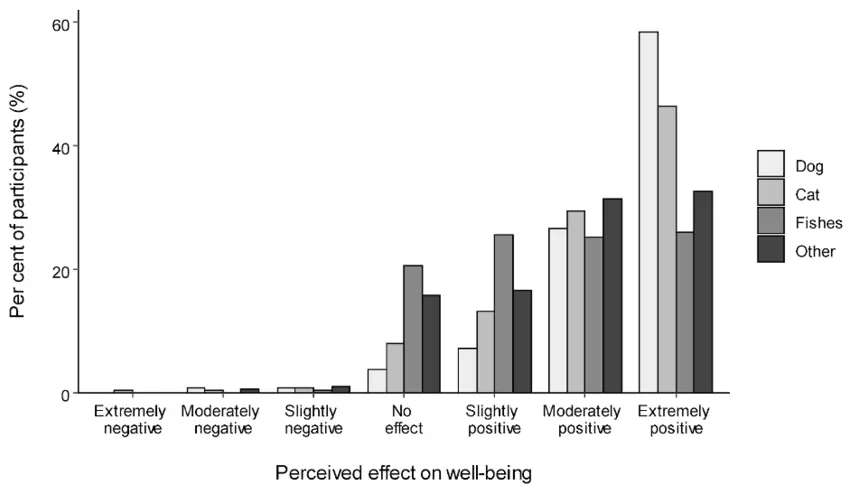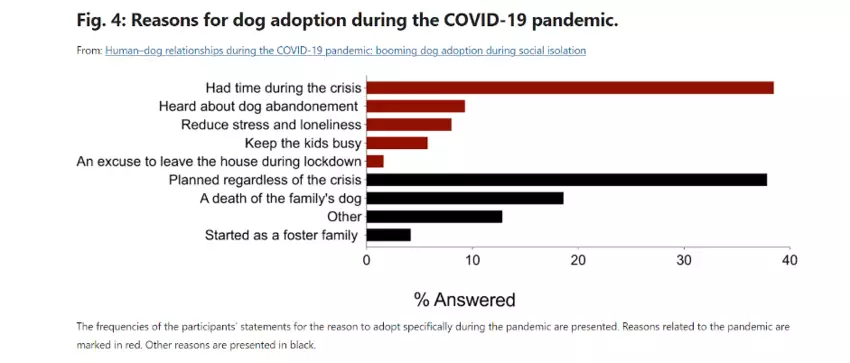- Pet owners believe their animals meant they have been less lonely during the pandemic, as well as giving them a sense of purpose.
- Dog walkers appreciate the social interaction they get from being out and about, and get a boost for their mental health.
- The number of people looking to adopt a pet has rocketed during the pandemic, but there are downsides as well as upsides to animal ownership.
- Pets have also seen benefits from having us at home more.
They slobber. They whine. They leave paw prints and fur over the sofa. But we love our pets. And being locked down with them for long periods over the pandemic has made us appreciate them all the more.
With many countries now relaxing rules and freedoms gradually being reinstated, a growing band of research is demonstrating how much of a crutch our furry friends have been during what has been a tough time for many.
Pet owners overwhelmingly believe that their animals have boosted their well being during the pandemic, staving off loneliness, according to a recent study by the University of the West of Scotland
“Despite being physically isolated from friends, family or colleagues, having a pet meant never truly being alone,” says Heather Clements, UWS Ph.D. student on the study. “Companion animals not only helped to take their guardians’ minds off negative thoughts associated with the pandemic, but also provided a much-needed source of purpose.”

As well as the companionship from pets themselves, they can also serve as a social catalyst. Even in the tightest of lockdowns, owners were allowed to walk their dogs, potentially offering small windows of socially-distanced interaction with other people.
Recent research suggests that older people who walk their dogs experience fewer symptoms of loneliness than those who don’t walk their dogs. And among people that felt coronavirus had cramped their social lives, those that walked their dogs once a day did not report feeling more lonely.
A friend for life
As the virus fundamentally changed the way people lived and worked, lots of them saw an opportunity to get a new pet. The more socially isolated people became, the more their interest in adopting a dog spiked, according to one study.

And Google searches for pet, dog and cat adoption boomed during the early phases of the pandemic. There was a 250% increase in global searches by would-be pet owners during April and May 2020, compared to the same period in 2019. Interestingly though, while the volume of searches by people looking to own a dog has fallen away, the interest in cat adoption is sustained. This may be because cats are less of a challenge as owners return to their places of work, the study suggests.
However, pet ownership is not without its challenges. Some pet owners reported feeling stressed about their pet’s well-being during lockdown, and raised concerns about how they would cope with the loss of their animal during lockdown. Others worried about the possibility of their animals carrying the COVID-19 virus, access to vets, and how their animals would cope with the separation once they returned to work. The financial burden of pet ownership in such a period of uncertainty unsettled some people, too.
That said, it seems many animals have relished the new levels of attention they have been receiving. A joint study by the Universities of York and Lincoln found many owners reporting an improvement in their animal’s welfare, becoming more playful, relaxed and affectionate. Cats in particular benefitted.
And it also seems the mental health benefits of pet ownership flow both ways. The study also found owner mental health appears to have a small beneficial impact on animal welfare and behaviour
Charlotte Edmond Senior Writer, Formative Content
This article was originally published on the World Economic Forum (WEF). You can read it here.



